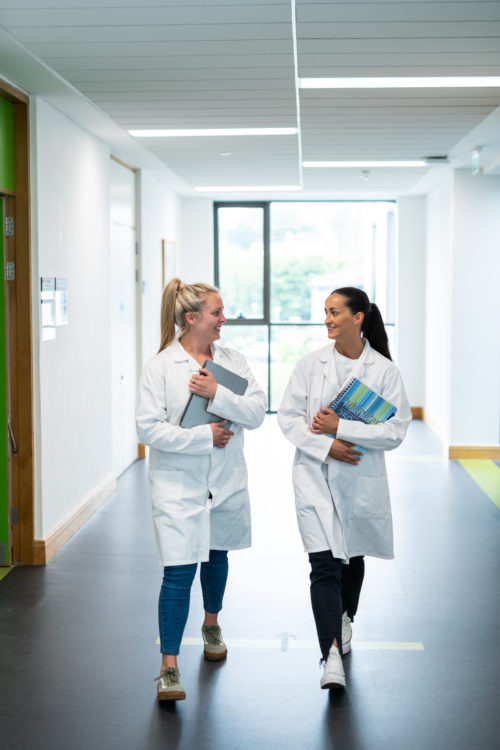Proactive measures are being taken to increase female representation in STEM investigator research grant programmes. Three women from the Atlantic Technological University partners share their individual experiences of the sector.
Dr Shagufta Henna, Ph.D.(UK), Postdoc (IRL)
Senior Member IEEE, Lecturer, Department of Computing, LYIT
I want to communicate that women can establish a career in STEM as much as men can, thanks to the significant push of STEM by Letterkenny IT through the offering of a large number of industry-led programs. Specifically, the new Technological University will broaden the exposure and opportunities for women to promote research and innovation. It will bring women to the forefront to take initiatives on investigator-led research grants during the most critical junctures in their careers to bridge the gap of perceived research leadership.
As a computer scientist, I urge the need to strengthen academic, research and practical STEM environments that can cultivate creative ways to address science and technology problems that are inclusive. STEM careers, such as science and technology, have challenges due to rapid developments which require continuous engagement and awareness.
To address these challenges, we need to engage women in research and innovation through good representation in national/international research grants. We need to ensure that gender balance is reflected in our portfolio of research awards and gender dimension is tackled well in funded research through Atlantic Technological University partners in collaboration with industry and funding agencies.
Dr Fiona Malone
Assistant Lecturer, Dept of Mechanical and Industrial Engineering, School of Engineering, GMIT
I always had a flare for maths and science in school and enjoyed those classes. For my Leaving Cert, I had to go to the boys’ school across the road to learn physics. Looking back, not having physics offered as a subject in my own school might have discouraged other girls from studying it. I was one of only 10 girls in the country awarded an engineering scholarship with SFI that year as I went on to study biomedical engineering for my undergraduate degree
I work in science communication which is the practice of communicating science-related topics to non-experts. In 2019, I won Famelab Galway – a science communication competition whereby scientists speak about their research for three minutes without presentation slides. I spoke about my research in atrial fibrillation and ischemic strokes.
I have represented GMIT at other communication events like Soapbox Science, Brightclub and I’m an Engineer and was invited by the Irish Embassy in Indonesia to give a series of talks on improving women’s access to STEM.
GMIT and the Atlantic Technological University have given me a platform to show everyone that women have a place in STEM. As the saying goes – if she can’t see, she can’t be.
Dr Richéal Burns
Lecturer in Health Information Technology, School of Science, IT Sligo
STEM is for everyone!
There is still a strong belief that STEM career paths necessitate high performance in mathematics and science. My expertise is in health informatics and economic modelling. I love my career and the adventure and fulfilment it’s brought to my life.
Failing chemistry for my Leaving Cert – not because I wasn’t smart or capable but because I just didn’t get it at the time – was a huge blow to my ambitious spirit. Pressures of being a teenager can be overwhelming and the Leaving Cert process doesn’t let everyone shine the way we are meant to.
I loved mathematics, logic and problem solving but didn’t achieve those ‘sacred points’ to follow that path at that time. Access routes to STEM education and career paths are more diverse now; so, don’t be deterred by the traditional performance metrics that ‘tell you how smart you are.’ Follow your passions! If understanding how things work, cause and effect and using tools to understand how to evolve society excites you –STEM is for you!
Now more than ever we need students who want to be part of making our tomorrow better. STEM careers can provide the catalyst to ignite your passion for change!
Dr Orla Flynn
President/Uachtarán, GMIT
As our three partner institutes come together in early 2022 to become the new Atlantic Technological University, I want to extend a warm welcome to all women to study a STEM discipline with us, whether on one of our many campuses or remotely from your home or workplace. Cuirfear fáilte mhór romhaibh!
